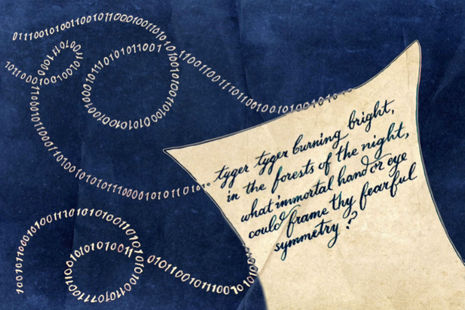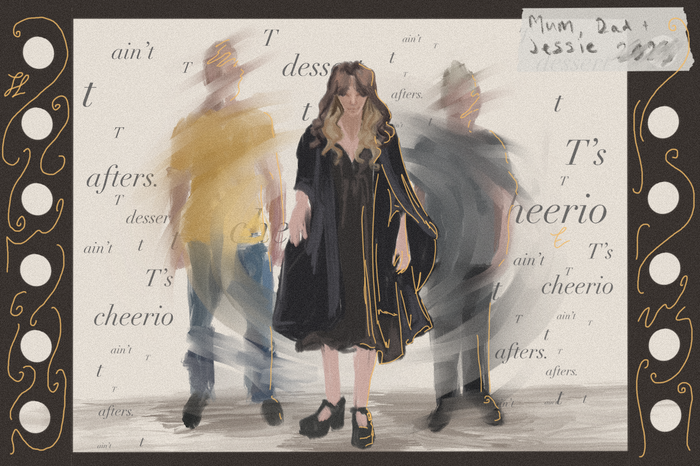Is AI-generated poetry superseding human verse?
Heather Leigh questions whether literary genius is limited to humanity in dissecting AI poetry

They’re called the humanities for a reason: our ability to create and appreciate art is a defining part of our humanhood. This sentiment implies reciprocity; human involvement defines a work of art. Yet a recent study reveals AI-generated poetry is indistinguishable and even preferable to human-authored verse. Destabilising our most fundamental definitions, this development necessitates a re-evaluation not only of what constitutes art, but also of what makes us human.
The study involved researchers from Pittsburgh University giving participants poems from authors including Geoffrey Chaucer, William Shakespeare, Emily Dickinson, and Sylvia Plath, alongside imitation AI-generated poems. The simplicity of AI-poetry was commonly used to infer human composition, while the complexity of human-poetry was misread as AI’s incoherent ramblings. When rating poems in areas including rhythm, imagery, beauty, and meaningfulness, participants favoured AI-generated verse in almost every category.
Humans have attempted to define poetry for centuries. In the preface to Lyrical Ballads, Romantic poet William Wordsworth claims poetry “takes its origin from emotion recollected in tranquillity”. In ‘An Argument with Wordsworth’, present-day poet Wendy Cope counters that “poetry is emotion recollected in a highly emotional state”. What these authors agree on, however, is that poetry’s genesis is feeling. Such self-reflective feeling – and the impulse to express it in verse – was once a hallmark of our humanity. Now, expressions of emotion generated in the heart of a computer pass as human, while human writing is mistaken as artificial. We are thus compelled to rethink our identities as poets and as people.
“When rating poems in areas including rhythm, imagery, beauty, and meaningfulness, participants favoured AI-generated verse in almost every category”
Stripped of complex conceits and esoteric references, AI-poetry is easier to understand. But is easier always better? Or does our urge for effortless gratification reflect a cultural shift in expectations and capacities partly brought about by increased technology use? Everyone deserves to enjoy poetry; perhaps AI-poetry is art adapting to the needs of the public. Yet participants displayed crucial biases against AI-generated poetry, despite unknowingly rating it higher. The study suggests that because participants mistook AI-poetry for human composition, they valued what they thought was human-poetry over its supposed artificial counterpart.
“The magic of verse is its ability to create a meeting-space between living beings”
Another study by Columbia Business School revealed a similar aversion towards AI-artwork: participants deemed it inferior despite reporting they would have been unable to differentiate it from human-artwork without labels provided. It’s not a question of AI’s ability; it’s a question of our own values. If a birthday card was AI-generated, you probably wouldn’t keep it, whereas the same message from a loved one might be cherished forever.
James Elroy Flecker celebrates poetry’s human-to-human connection in ‘To a Poet a Thousand Years Hence’. The only aspect of poetry that AI will never be able to replicate is the person behind the page; yet many value this aspect above all. The magic of verse is its ability to create a meeting-space between living beings. As Flecker says:
Since I can never see your face,
And never shake you by the hand,
I send my soul through time and space
To greet you. You will understand.
 News / Judge Business School advisor resigns over Epstein and Andrew links18 February 2026
News / Judge Business School advisor resigns over Epstein and Andrew links18 February 2026 News / Hundreds of Cambridge academics demand vote on fate of vet course20 February 2026
News / Hundreds of Cambridge academics demand vote on fate of vet course20 February 2026 News / Petition demands University reverse decision on vegan menu20 February 2026
News / Petition demands University reverse decision on vegan menu20 February 2026 News / CUCA members attend Reform rally in London20 February 2026
News / CUCA members attend Reform rally in London20 February 2026 News / Caius students fail to pass Pride flag proposal20 February 2026
News / Caius students fail to pass Pride flag proposal20 February 2026










